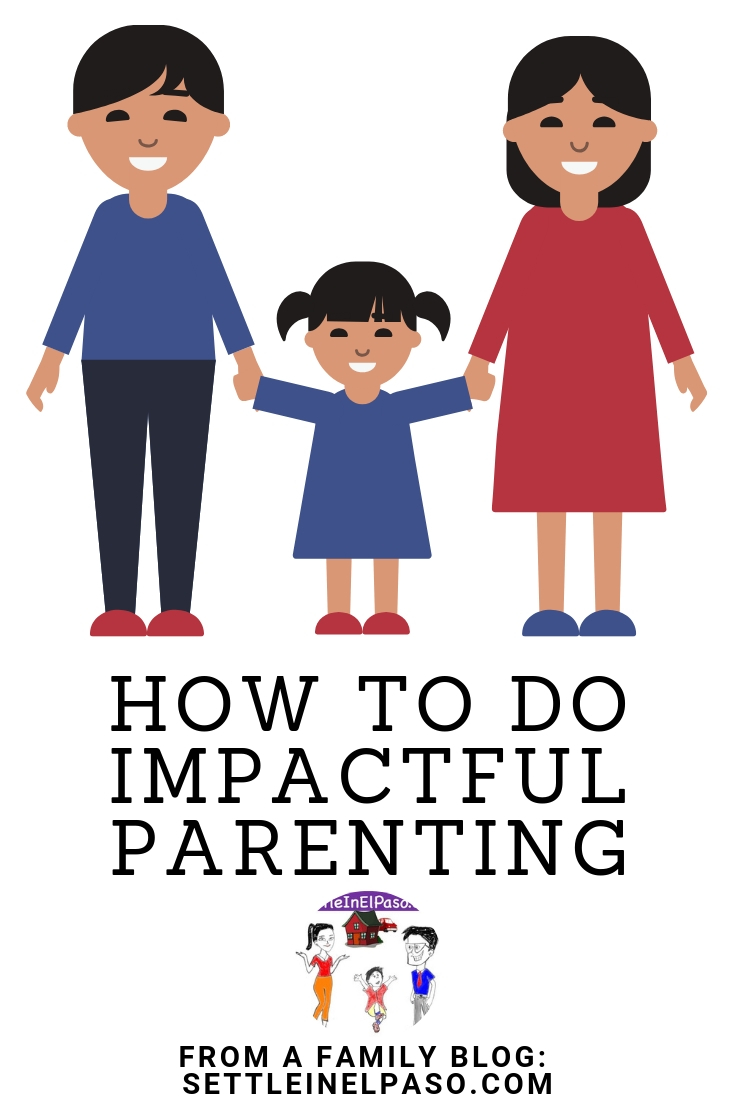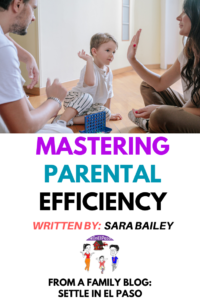

When I drop Dear Son at school, I always feel the excitement with a funny feeling that all these kids were not here only a few years ago. Think about the pressure a kindergartener goes through. Imagine that you have landed in a country where you do not understand the language. A child goes through even more stress than that in the first few years. Children’s capacity to handle stress is enormous. This is why they do not break down but grownups do.
As parents and as grownups, our merest responsibility is to think about what would help children around us grow as nice human beings. Phrasing the right words and conveying the message that we are always here for our children is a key to modern parenting. In this post, we mostly talk about how we approach Dear Son in his difficult times as well as great times. In addition, we also provide some tips that we plan to use in the future when he will grow up more. Some of the strategies we explain below are motivated by our findings on effective parenting strategies available on the Internet. Let’s discuss the characteristics of effective parenting.
Let children do what they’re supposed to do
Society is competitive. When a school project is given, it is tempting for parents to do the work for their children. In the name of a “family project”, some of our friends love to do school projects that their kids are supposed to lead. Many times, parents do not realize where there should be a boundary between “helping kids” and “doing the work on behalf of kids”.
The boundary is simple. Unless otherwise stated that the homework is for parents, parents should refrain from doing the homework or project. I am not kidding — this year, we were given homework from Dear Son’s school. The homework was to write a letter to the teacher ?? to inform him about Dear Son’s strength, weakness, fear, and our expectations from the school. We, Dear Son’s parents, did the homework ourselves. Neither Dear Son nor Dear Son’s grandparents helped us.
Anyway, what I am trying to say is — Life is busy; it seems it is faster to do children’s homework directly than having it done by children. We must remember, the homework is not for us — it is for our children. We already had our fair share of homework in our childhood. Our children’s school is not for our education. We should let our children learn what they are supposed to learn. We must let the creativity of our children flourish.
If children need help with the topic of the homework, we can use example-based approaches to clarify the concept but we should never solve the problem for them. We should let our children do any project that they are supposed to do. Definitely, the child may discuss critical ideas ? with parents but the overall project should be led by the child, not by the parents.
Remember, we will not be with our children throughout their entire life to directly help them. It is better to make sure that our children become ready to lead when we are still around. Your children may not win prizes if they lead their own projects but know for now that your children will be ready to win a greater battle later in life if you allow them to lead today.
Avoid the use of negative words, even about yourself
We may think that the use of negative words about ourselves is an act of being truthful. We cannot be more incorrect. Use of negative terms about ourselves like, “My skin is looking like the skin of a turkey ? ” or “I am becoming fat” may sound funny time to time but such words have a long-lasting impact on children gobbling up the statements.

The feeling that looks ?are important makes children more vulnerable in their world of a popularity contest. A few months ago, I was overhearing two third graders. One of them was saying that her brother plays football ? in high school. The other girl instantly started to say things like — my brother is very popular; all girls want to talk to him; they want to be his friends; my sister is a cheerleader; she is beautiful. Oh, this cruel world … and some things never change in this cruel world.
Now if these third graders hear their parents saying — “I am becoming fat” — I’m pretty sure the kids will stop eating to be skinny because they believe in popularity contests. Values propagate from us to our children. Therefore, we have to carefully choose our words. Just avoiding the “f” word is not good enough for effective parenting because everything we say represents what we value. We propagate the things we value to our children using our words, sometimes unintentionally.
Acknowledge the feelings of your child
We have a tendency of saying, “You’re okay, sweetie”, or “You will be fine”, after hearing what a hard time our child had in the school. The problems our children tell us might be mundane to us but the problems are big in our children’s life. If a child was ok, then definitely she/he won’t be reaching out to parents about it in the first place.
Dear Son (a first grader now) has reported many urgent things to us about incidents at school in the past year. The list includes — not being able to be the student-of-the-month (which requires certain sport-skills, which genetically we do not have as a family), some friends he is fond of not willing to play with him during recess, or even we not being late enough in picking him up from aftercare after the school (so that he can play more with friends). These are not serious problems for us. However, we do seriously discuss with him about these very serious problems in his world.
“You’re okay” is a response that not only avoids discussions on how to solve the problem but also it makes one feel insignificant. Similarly, “You will be fine” is not a good enough answer. An answer like “You will be fine” has to be followed by discussions and suggestions. When Dear Son comes to us with problems that had made him sad, we talk about his feelings. We talk about our experiences from our childhood around the matter. Then, Dear Son gets a chance to ask many more questions around the same problem. Not that we can always give him convincing answers but at least he feels that we were not ignoring him. Moreover, he feels that he has a shoulder to cry on. We listen and acknowledge his feelings. Children feel more confident when parents acknowledge their feelings. They feel “I will be fine” even if parents do not utter the exact words.
Avoid rushing kids to do something
Can you connect to the situation when kids are rushed by parents to get ready? I can. We were rushed a lot when we were children.
Kids being slow is not their fault. They are naturally inquisitive and do not realize the urgency of deadlines. If a morning becomes a rush, I would blame myself or Netflix but not the little ones. So that rushing the kids does not become a habit, parents should get to bed early and wake up with ample time on hand so that kids can wake up slowly, enjoy their morning cuddles, and have their breakfast ? cheerfully.

Now, what’s wrong with rushing?
The answer is, rushing kids is nothing but putting some unnecessary pressure on them that could be avoided. Rushing sometimes involves screaming, which only leads to an unhealthy family lifestyle. Moreover, rushing in the morning would someday lead to not having breakfast, when kids grow as teens. With a slow and cheerful morning, children will remain energetic throughout the entire day.
Praise moderately and do not inflate too much
It seems — praising kids should inspire them. The problem is — how kids (and grownups) interpret the praise may vary drastically. Some might think — ok this is where I need to stop pushing myself. Some might think — well … it is good enough to get praise from my parents … let me try harder so that I can master this skill so that I can reach the outside world. Due to the variations in the thought process, inflated praise is not encouraged in modern parenting anymore.
Sometimes, we falsely assume that children with low self-esteem need inflated praise for encouragements. Research shows that this is not a correct assumption. Children with low self-esteem react to inflated praise by reducing efforts to seek out challenges. On the contrary, children with high self-esteem tend to seek out challenges with inflated praise.
What should we do then?
It is hard to say. We probably need to do everything in moderation. Instead of saying, “Wow … the drawing is better than Da Vinci”, it is probably better to say, “I see that you are really enjoying drawing. Great for you.”, or even better if you say “Can you teach me how to draw this?” When the child will demonstrate how to draw the picture, regardless of the child being high or low self-esteem, she/he will enjoy the interaction with you. That is the encouragement children need. They do not need some inflated (and probably meaningless) praise.
Avoid comparing children
While having role models can be inspiring, as a child, I never liked comparing me with other children who were apparently doing great (to some extent). As a teen, if I were ever told “Why can’t you be like Jane or John?”, my answer in my mind was “Why didn’t you become Marie Curie or Albert Einstein”. I was a modest kid — so I did not answer disrespectfully.
Becoming like a peer is never the key to inspire a child. To bring the strength out of an adolescent, you need to know her/his strength. Knowing the strength is very difficult. The best anyone can do is to try the best. That “trying the best” does not include comparing the kid with another kid.
Instead of setting role models for your children, make them role models. Tell the child that younger kids look ? up to her/him. If a child has younger siblings, parents can say “Your younger siblings see you as a role model.” Well… that is some pressure but older siblings are habituated to sibling-responsibility.
Do not force physical contact like hugs
Dear Son feels uncomfortable ? if we tell him to hug a guest with whom he has not been in touch for more than a week. As parents, we sometimes think ? telling children to kiss grandma ? or grandpa ? will strengthen the family bond. The problem is — many kids do not like physical contact if the intimacy is not really strong.
Not having total control over the body in demonstrating affection may leave some scars in young minds. This is not an intentional form of abuse but not being in charge of the physical contacts may make anyone uncomfortable, not only kids. If a child is not comfortable with hugging and kissing, do not force the child in doing so. The child will demonstrate intimacy if she/he develops a significant level of connection. Your child will hug your parents if you hug them and your child feels the same level of affection with your parents.
Avoid statements implying that your children’s work is your source of pride
“We are proud of you” who knew this statement is not good for kids. The statement puts some invisible pressure to children by implying that all their activities are related to parental pride. No matter how proud you are — it is a fact that your children are not here to make you proud. A statement like “good for you” is much more children-oriented than the parent-centric statements.
Concluding remarks
Effective parenting is a continuous learning process. What we think today might not feel appropriate tomorrow. We, parents, define the characteristics of effective parenting. The most important things are to keep researching and keep thinking about how to best contribute to the growth of our children. Please share any thoughts about effective parenting in the Comments section below. Have a wonderful week.
From A Family Blog: Settle in El Paso
Related articles
Subscribe to receive notifications on our new posts.









This surely is one of the best advice I have read on parenting. Loved your article. Thank you.
Thank you for this- what a wonderful resource for parents. At the end of the day, we are all just trying to be the best parents to our kids.
all guardians make an honest effort dependent on what to esteem in that time. Thusly, I don’t think you have missed anything. ? Much obliged to you such a great amount for visiting and remarking.
MeenakshiR recently posted…Stubborn child | How to discipline | How to deal stubborn child
So evident. There isn’t anything called flawless child rearing. Everything we can offer to our children is making an honest effort to raise them well.
MeenakshiR recently posted…Stubborn child | How to discipline | How to deal stubborn child
Being a good parent means you need to teach your child the moral in what is right and what is wrong. Setting limits and being consistent are the keys to good discipline. Be kind and firm when enforcing those rules. Focus on the reason behind the child’s behavior. And make it an opportunity to learn for the future, rather than to punish for the past.
Agreed. Thank you for stopping by and writing a valuable comment. Have a wonderful weekend ahead.
Thanks for sharing such a great article with all parenting information.
Thank you for visiting and commenting! Happy new year!
When my dad was a kid he had several issues with my grandpa when it came to his understanding of parenting. So, when we were born he made sure to not repeat the same mistake that his father made and everything will be fine. But, that was certainly not the case. Now I think that not making the parenting mistake my father made will make me a perfect parent. But, There is no such thing as perfect parenting. As you have rightly mentioned that each kid is different, so the one method of parenting which suits and inspires one child might not do the same with the other. So, my point is, no matter what a parent might not, it can never be perfect. And, that’s the beauty of it, because once a perfects rules of parenting are invented, it will make parenting a really boring job. PArenting is about using your senses and skills to come up with ideas that are custom made for your own kids.
Abby recently posted…30+ Award winning toys for 5 year olds
So true. There is nothing called perfect parenting. All we can offer to our kids is trying our best to raise them well. Thank you for visiting and commenting. Wish you a wonderful Holiday season.
Surely this is excellent advice! An insightful post!
I appreciate the kind words. Thank you for visiting and commenting.
In particular I like what you say about avoiding comparing children or using negative words about oneself. We look up to our parents and whether they like it or not (!) they’re our role models xo I’m very lucky to have my parents who have really given me so much love and attention. Your post will help many people.
Absolutely, comparing children or use of negative words do not bring any good. We learn so many things from parents. Great to know that your parents made sure of a wonderful childhood full of care and love for you. Thank you for visiting and commenting.
Thank you for this insightful & humorous post – I wish I had access to this 2 decades ago … it would have consolidated what we would have liked to do as parents to be more impactful.
Thank you so much for your lovely note ?. Definitely all parents try their best based on what to value in that time. Therefore, I do not think you have missed anything. ? Thank you so much for visiting and commenting. Have a wonderful week.
Loving Husband and I have worked hard not to look back and second guess ourselves, but there were times when we could have used a friend like you to reassure us that we were not crazy to do what we were doing.
Thank you for the kids words. Definitely, you and your husband have done a great job. You have a lovely family.
I hope to visit Singapore some day and eat all the delicious food you mentioned on your website.
Absolutely!